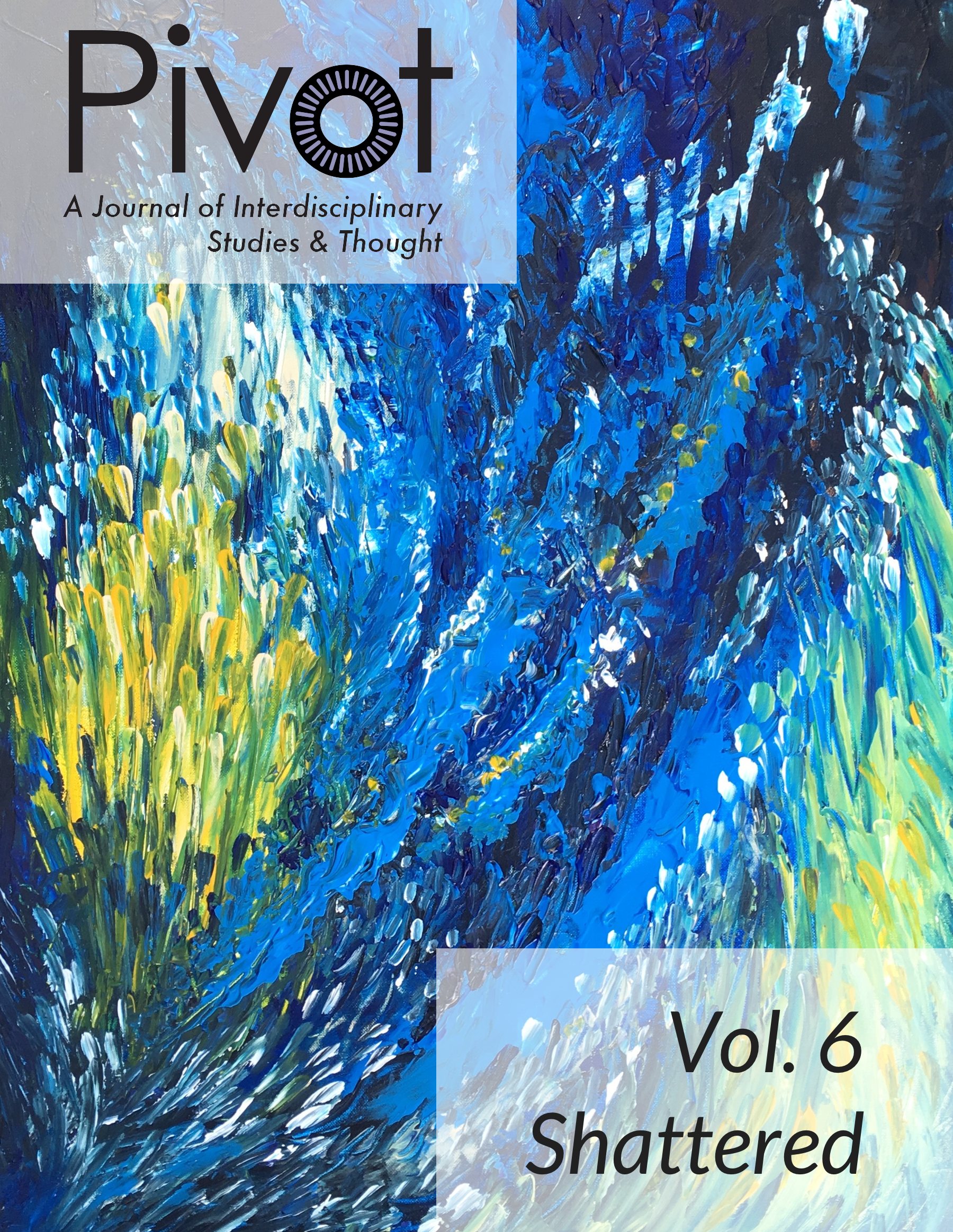Picking Up the Pieces: Embodied Theory in Bessie Head’s A Question of Power
DOI:
https://doi.org/10.25071/2369-7326.40276Abstract
This article approaches Bessie Head's nove A Question of Power as a work of vernacular theory engaged with the interactions between power, identity, goodness and suffering. The text's difficulties are seen, first, as characterstics of embattled theory, in which there is no possibility of safe remove or calm reflection. Further, these difficulties are read as tactical, engaging the text and its reader in a form of madness which destablizes the realities formed by power. A fundamental tenent of Head's theory, 'be ordinary', is interrogated: how can ordinariness be disentangled from conformity? Being ordinary may be understood as becoming everyone--a process through which Elizabeth's identity is shattered. Schizophrenic breakdown becomes, then, a position from which Elizabeth can theorise the repressive operations of identity and the intimate functionings of power.References
Bignall, Simone, and Paul Patton. “Deleuze and the Postcolonial: Conversations,Negotiations, Mediations.” Deleuze and the Postcolonial, edited by Simone Bignall and Paul Patton, Edinburgh UP, 2010, pp. 1–19.
Burns, Lorna, and Birgit M. Kaiser, editors. Postcolonial Literatures and Deleuze. Palgrave Macmillan, 2012. DOI: https://doi.org/10.1057/9781137030801
Deleuze, Gilles. Pure Immanence: Essays on a Life. Translated by Anne Boyman, Zone, 2001.
Deleuze, Gilles, and Félix Guattari. Anti-Oedipus. 1972. Translated by Robert Hurley, Mark Seem, and Helen R. Lane, Continuum, 2004.
Deleuze, Gilles, and Félix Guattari. A Thousand Plateaus. 1980. Translated by Brian Massumi, Continuum, 2004.
Foucault, Michel. “Preface.” Deleuze and Guattari, Anti-Oedipus, pp. xiii–xvi.
Hallward, Peter. Absolutely Postcolonial: Writing Between the Singular and the Specific. Manchester UP, 2001.
Head, Bessie. A Question of Power. Heinemann, 1974.
Kim, Sue J. “‘The Real White Man Is Waiting for Me’: Ideology and Morality in Bessie Head’s A Question of Power.” College Literature, vol. 35, no. 2, 2008, pp. 38–69. DOI: https://doi.org/10.1353/lit.2008.0019
Lederer, Mary S., and Leloba S. Molema. “‘That Troublemaker’: Bessie Head in Botswana.” Emerging Perspectives on Bessie Head, edited by Huma Ibrahim, Africa World, 2004, pp. 109–20.
Lewis, Desiree. Living on a Horizon: The Writings of Bessie Head. Africa World, 2007.
Massumi, Brian. “Translator’s Foreword: Pleasures of Philosophy.” Deleuze and Guattari, A Thousand Plateaus, pp. ix–xvi.
McLaughlin, Thomas. Street Smarts and Critical Theory: Listening to the Vernacular. U of Wisconsin P, 1996.
Ravenscroft, Arthur. “The Novels of Bessie Head.” Aspects of South African Literature, edited by Christopher Heywood, Heinemann, 1976, pp. 174–86.
Rose, Jacqueline. “On the ‘Universality’ of Madness in Bessie Head’s A Question of Power.” Critical Inquiry, vol. 20, no. 3, 1994, pp. 401–18. DOI: https://doi.org/10.1086/448719
Spivak, Gayatri Chakravorty. “Can the Subaltern Speak?” Colonial Discourse and Post-Colonial Theory, edited by Patrick Williams and Laura Chrisman, Columbia UP, 1993, pp. 66–111.
Taussig, Michael T. The Devil and Commodity Fetishism in South America. U of North Carolina P, 1980.
Zinato, Susanna. The House Is Empty: Grammars of Madness in J. Frame’s Scented Gardens for the Blind and B. Head’s A Question of Power. CLUEB, 1999.

